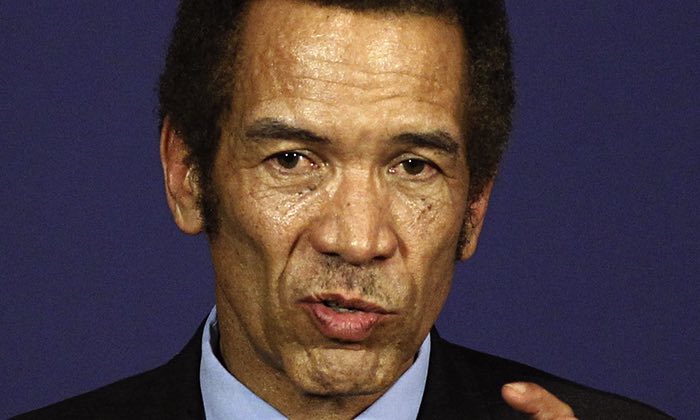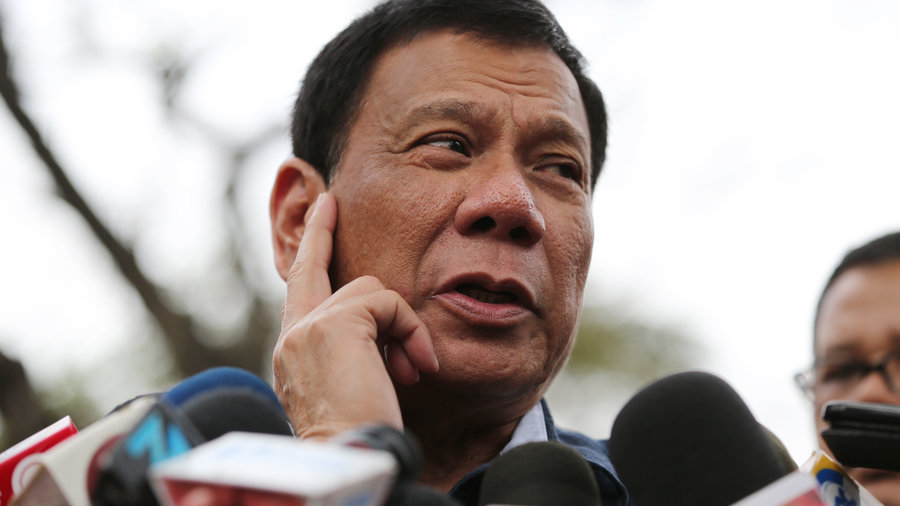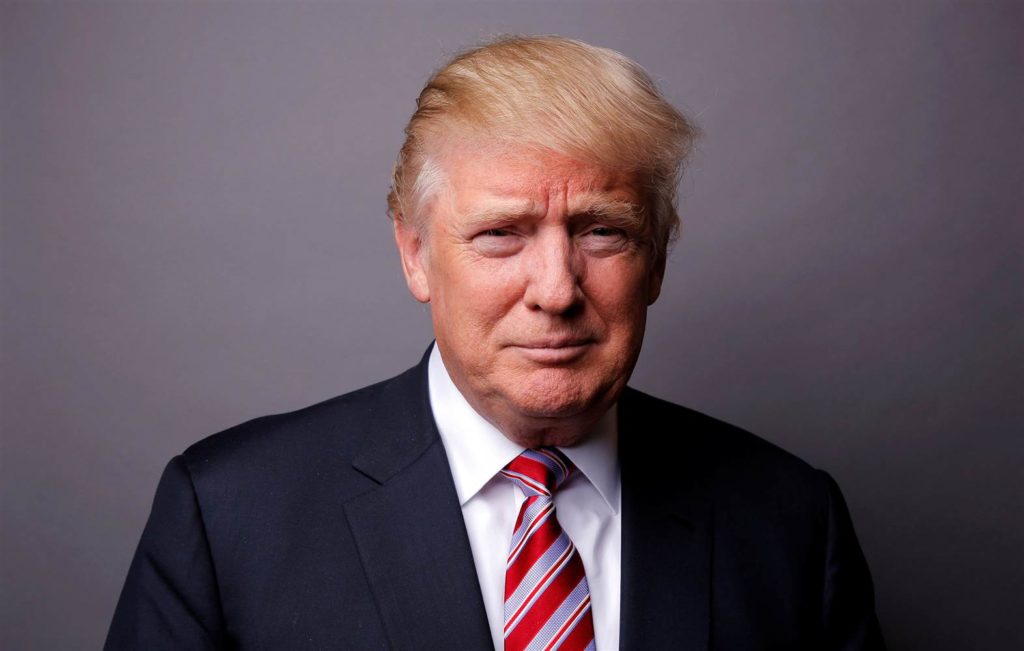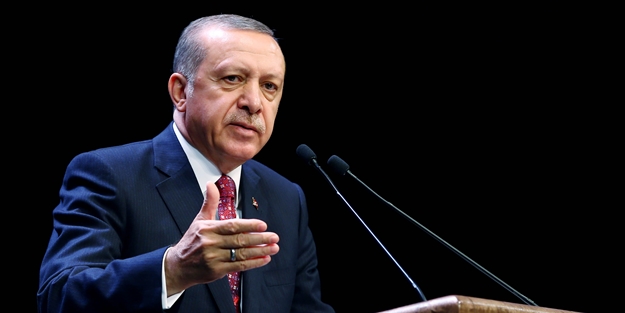
Khama, Trump, Duterte and Erdoğan –World Press Freedom Day: A story of rights, liberties, duties and threats to national security!
6 May 2017Ian Khama, Donald Trump, Rodrigo Duterte and Recep Tayyip Erdoğan are all democratically elected leaders under their respective countries’ constitutions. And while they appear to be worlds apart in political outlook, methods of governance and social policies, they have a common thread that unites them; a hatred for the media.

Khama (Pic: www.theguardian.com)
Ian Khama, Donald Trump, Rodrigo Duterte and Recep Tayyip Erdoğan are all democratically elected leaders under their respective countries’ constitutions. And while they appear to be worlds apart in political outlook, methods of governance and social policies, they have a common thread that unites them; a hatred for the media.
They are not alone, however! There are other autocratic leaders that share their sentiments in respect of the media. Ironically, many readers will nod their heads appreciatively when they listen to these four condemn the media, little realising that the commonality of their attack on media freedom and freedom of expression undermines the very integrity of their governments and, as a result fractures social cohesion.

Duterte (pic: npr.org)
Khama has repeatedly called media practitioners unpatriotic and claims they undermine the Constitution; Trump calls the media the enemies of the people; Duterte calls the media twisted, vile and says karma (not Khama) will come down on media practitioners. For his part, Erdoğan arrests and detains media practitioners at will, with an estimated 191 journalists behind bars in Turkey as of January this year and 231 having been arrested since July 15, 2016.
Freedom of expression, is protected in Article 19 of the Universal Declaration of Human Rights, giving it recognition as a fundamental human right and a prerequisite to any democracy. The United Nations recognises that Freedom of Expression, together with its attendant rights of freedom of information and press freedom, serve as a tool for the enforcement and enjoyment of all other rights. Freedom of expression creates an environment under which a collective of ideas can be heard for the betterment of society while simultaneously ensuring individual development and self-fulfilment: individual liberty. Courts too, have consistently ruled freedom of expression as a central tenet for a constitutional democracy.

Trump (Pic: cnn.com)
National security requires stability in society, it requires respect for the rule of law and human rights. Conversely, a key component of civil unrest is governments’ lack of respect for civil liberties, human rights and derogations from the rule of law. Seen from this perspective, undermining freedom of expression, media freedom and freedom of information, not only violates our constitution and our democracy but furthermore threatens our national security.
Human nature requires of all of us that we live in social cohesion; it is a fundamental part of who we are as human beings. Living in a society requires that we live by basic and accepted rules and in return we agree that we shall be governed in a manner that promotes the society in which we live and yet be respected for who we are as individuals. It is this respect for us as individuals that gives legitimacy to the limitations that society imposes on our individual rights. Our collective acceptance of the rules that govern us; are the rules which find expression in our Constitution.
Our political leaders agree to serve us and derive their power to do so by virtue of the Constitution. It is the constitution that empowers them to serve in a manner that ensures the objectives of society are advanced. It is our leader’s legal duty to all citizens to promote and advance our society in conformity to our aspirations. They in turn are required to respect us and honour their obligations to us both as individuals and as society. For us, as citizens the task is simple, respect the law, live and flourish as best as we can. For those that serve us, as our leaders, the task is more onerous. They must balance the needs of the whole of society, not their needs or even the needs of the majority of the society that they supposedly represent, though in the case of Khama and Trump they rule by less than a majority, against those of the individuals.

Tayyip Erdoğan (Pic milligazete.com.tr)
Fundamental rights ensure that within this interdependency that individuals have with government and society, their individuality and personal liberty is still respected. Rights can only be reduced by government, where in respecting an individual’s rights government would cause greater harm to society as a whole. It is this understanding of democracy that gives legitimacy to government. Once government ceases to adhere to this fundamental understanding of governance it loses its legitimacy.
The correlation between civil unrest and illegitimate government action that infringes upon civil liberties and human rights is well established. So too is the correlation between civil obedience and governments that adhere to a greater respect for individuals rights and freedoms. The greater the tolerance therefore, for human rights, the greater the legitimacy government enjoys and the greater the social cohesion. Undermining people’s rights breaks the cohesion, leading to unrest and civil disobedience. Such civil disobedience is however, legitimatized by seeking to restore the rights that have been undermined, the infringement of which led to the fracturing of social cohesion.
Civil obedience can be bought, albeit temporarily in times of national prosperity, people turn a blind eye to violations of rights, even if only for a moment, if there is food on the table and they can send their children to school, but in times of economic stress underlying tensions come to the fore, when they do, the result is either greater authoritarianism or widespread civil unrest that results in revolution; a complete social change to address the social injustices that have arisen from the violation of rights: A threat to national security.
It is the interplay of rights, duties, obligations and governance in our society that hold us together, undermining freedom of expression can only have one consequence; an attack on the media is an attack against freedom of expression; an attack on freedom of expression is an attack on our constitution; an attack on our constitution is an attacks on our democracy, an attack on our democracy is an attack on our society; an attack on our society is an attack on our national security.
World Press Freedom Day is celebrated on the 3rd of May, it is commemorated in recognition of the role the media plays in our democratic dispensation. For Khama, Trump, Duterte and Erdoğan and all the others that serve us, they must be called to stop their attacks on the media, least they undermine our national security.


Join the Conversation